Search results for: “biodiverse biodiversity”
-
Biodiversity: impacts on forest CO2?
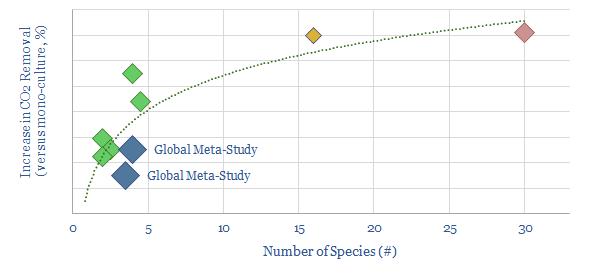
We have reviewed ten technical papers correlating forest carbon absorption with bio-diversity. In global meta-studies, diverse forests absorb 15-25% more CO2 than mono-cultures. The best studies achieve 70% higher carbon uptake in highly biodiverse forests.
-
Biodiversity: a breakdown of species and carbon stocks?
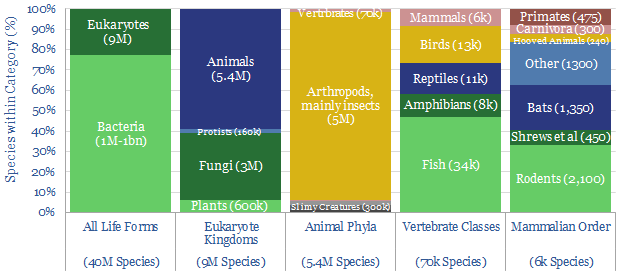
550GT of Carbon is stored in the living biomass of 40M species currently inhabiting planet Earth. About 70,000 are vertebrate species and 6,000 are mammal species. What implications for biodiversity, climate change and nature based solutions?
-
Nature based solutions to climate change?
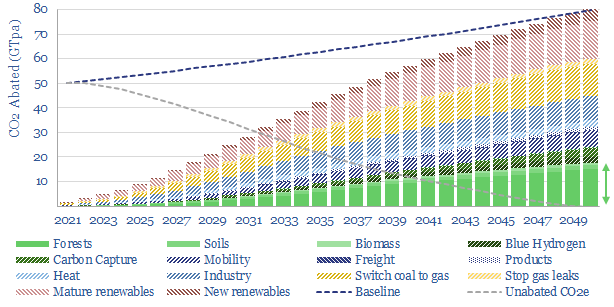
Nature based solutions are likely to deliver c20-25% of the decarbonization in a realistic roadmap to net zero. Reforestation is low-cost (c$50/ton), technically ready, convenient and helps nature. Key challenges are improving the quality of nature-based CO2 removals and accelerating momentum. We see upside for companies that can clear these hurdles. Our top ten conclusions…
-
Inspection costs: drones versus traditional quality control?
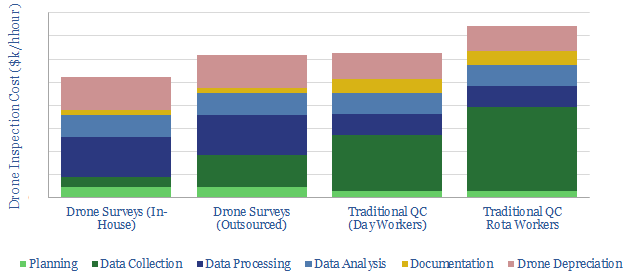
This data-file estimates the costs of drone inspections, for the construction and resources industries, using bottom-up numbers from technical papers. Costs per hour can be 30% lower than for traditional quality control. A single drone, including software licenses likely costs c$30k.
-
Reforestation: a real-life roadmap?
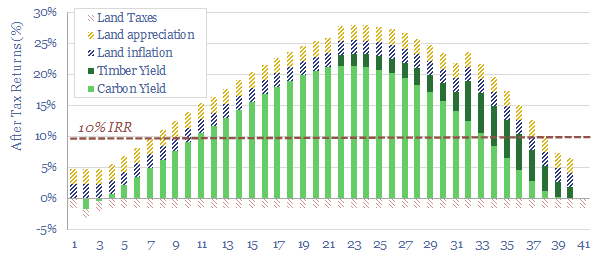
This 12-page note sets out an early-stage ambition for Thunder Said Energy to reforest former farmland in Estonia, producing high-quality CO2 credits in a biodiverse forest. The primary purpose would be to stress-test nature-based carbon removals in our roadmap to net zero, and understand the bottlenecks.
-
CO2 removals: teak plantations, Nicaragua?
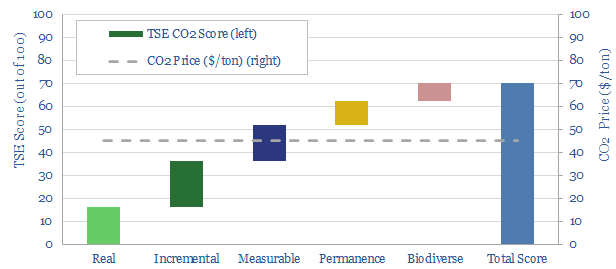
We reviewed a reforestation initiative, which should absorb 100,000 tons of CO2 from the atmosphere, by row-planting teak on former pasture land in Nicaragua. The project scores 70/100 on our five-point framework. But it also illustrates key debates for nature-based CO2 removals.
-
CO2 removals: Eden Reforestation, Madagascar?
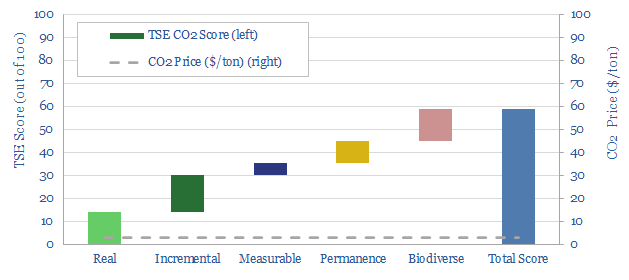
Eden Reforestation is a non-profit aiming to counteract deforestation and extreme poverty. It has planted c1bn trees and provides a fair income to c15,000 people. We appraised its activities in Madagascar on our CO2 removals framework, and made a $1,500 donation.
-
CO2 removals: TIST, Kenya and Uganda?
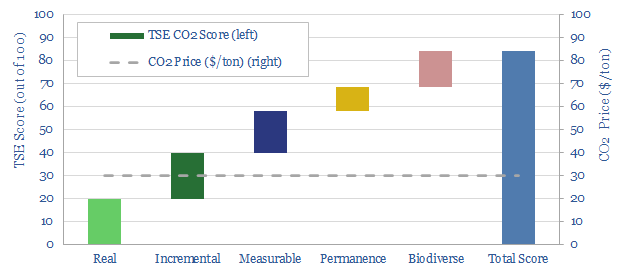
TIST is a non-profit, founded in 1999, coordinating the efforts of 137,000 subsistence farmers, mainly in Kenya and Uganda, to plant over 23.6M trees. CO2 credits are VERRA certified and scored highly on our framework for assessing nature-based CO2 removals.
-
CO2 offsets: Pachama’s AI platform?
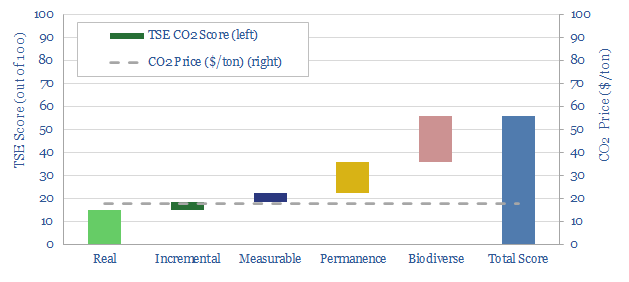
Pachama is a nature-based technology company, which has raised $79M, to create a portal where buyers can choose “from rigorously vetted forest restoration and conservation projects”, which in turn are tracked using proprietary AI. This data-file evaluates Pachama’s portfolio and our own experiences, using our usual framework for assessing nature-based CO2 removals.
Content by Category
- Batteries (89)
- Biofuels (44)
- Carbon Intensity (49)
- CCS (63)
- CO2 Removals (9)
- Coal (38)
- Company Diligence (95)
- Data Models (840)
- Decarbonization (160)
- Demand (110)
- Digital (60)
- Downstream (44)
- Economic Model (205)
- Energy Efficiency (75)
- Hydrogen (63)
- Industry Data (279)
- LNG (48)
- Materials (82)
- Metals (80)
- Midstream (43)
- Natural Gas (149)
- Nature (76)
- Nuclear (23)
- Oil (164)
- Patents (38)
- Plastics (44)
- Power Grids (130)
- Renewables (149)
- Screen (117)
- Semiconductors (32)
- Shale (51)
- Solar (68)
- Supply-Demand (45)
- Vehicles (90)
- Wind (44)
- Written Research (354)